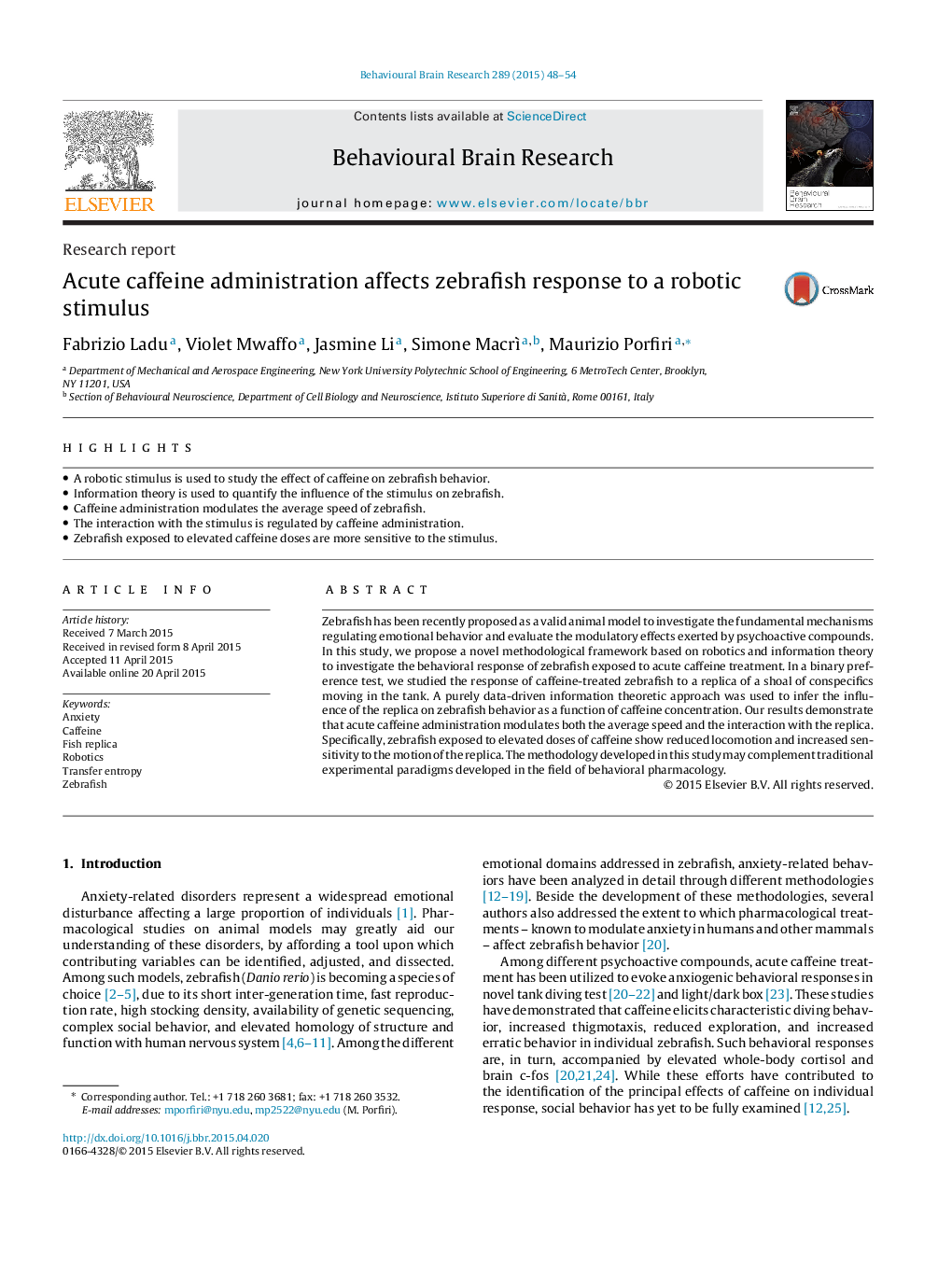| کد مقاله | کد نشریه | سال انتشار | مقاله انگلیسی | نسخه تمام متن |
|---|---|---|---|---|
| 6256722 | 1612943 | 2015 | 7 صفحه PDF | دانلود رایگان |
- A robotic stimulus is used to study the effect of caffeine on zebrafish behavior.
- Information theory is used to quantify the influence of the stimulus on zebrafish.
- Caffeine administration modulates the average speed of zebrafish.
- The interaction with the stimulus is regulated by caffeine administration.
- Zebrafish exposed to elevated caffeine doses are more sensitive to the stimulus.
Zebrafish has been recently proposed as a valid animal model to investigate the fundamental mechanisms regulating emotional behavior and evaluate the modulatory effects exerted by psychoactive compounds. In this study, we propose a novel methodological framework based on robotics and information theory to investigate the behavioral response of zebrafish exposed to acute caffeine treatment. In a binary preference test, we studied the response of caffeine-treated zebrafish to a replica of a shoal of conspecifics moving in the tank. A purely data-driven information theoretic approach was used to infer the influence of the replica on zebrafish behavior as a function of caffeine concentration. Our results demonstrate that acute caffeine administration modulates both the average speed and the interaction with the replica. Specifically, zebrafish exposed to elevated doses of caffeine show reduced locomotion and increased sensitivity to the motion of the replica. The methodology developed in this study may complement traditional experimental paradigms developed in the field of behavioral pharmacology.
Journal: Behavioural Brain Research - Volume 289, 1 August 2015, Pages 48-54
